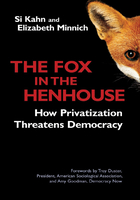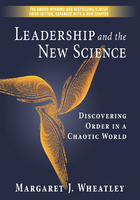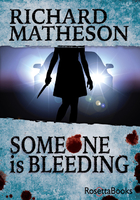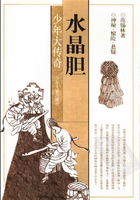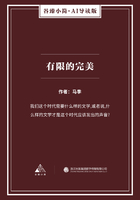Also by John Yoo
The Powers of War and Peace
Almost every day brings some new revelation in the war on terrorism, from tales of mistreatment of al Qaeda detainees held at the U.S. Naval Base at Guantanamo Bay, Cuba, to the National Security Agency's wiretapping of suspected terrorist calls into the United States without a warrant, to the Supreme Court's June 2006 Hamdan v. Rumsfeld decision rejecting military commission trials for terrorists. And every day brings some new confusion, exaggeration, or misinformed attack on the government's policies. This book, which draws from my time as an official in the Office of Legal Counsel of the Department of Justice from the summer of 2001 to 2003, seeks to explain the choices that the Bush administration made after 9/11.
These decisions were controversial because the events of 9/11 itself were unprecedented, which forced our government to reexamine old assumptions, to reconsider policies, and to rededicate itself to protecting the national security against a new foe. American policies to stop al Qaeda have come under enormous attack in the media, the academy, and abroad. In this book I explain that these policies were the result of reasonable decisions, made by thoughtful people in good faith, under one of the most dire challenges our nation has ever faced. The war with al Qaeda has presented difficult and close calls, and no doubt another administration might have reached different answers, but overall these decisions have been successful in preventing another 9/11-type attack on the United States.
Two mutually antagonistic parties have created the controversy today over terrorism policy. On one side, human rights advocates, academics, and pundits fear that the Bush terrorism policy will amount to the second coming of Richard Nixon. They view detention or wiretapping programs not as protecting the country from further attack, but as attempting to infringe on civil liberties or spy on innocent Americans. They believe that the methods and rules of the pre–9/11 world will work against post–9/11 terrorism. It is a view understandably colored by the lens of Vietnam and Watergate, which saw the greater threat to freedom coming from our own government rather than a foreign foe.
The other responsible party has been the Bush administration. It has often failed to explain clearly to the public the difficult decisions al Qaeda has forced upon us. Do we adopt aggressive measures against terrorists or allow the chances of another al Qaeda attack to increase? No one in the government wanted to make these choices; they were thrust upon us by the 9/11 attacks. When I joined the administration in the summer of 2001, I never anticipated having to detail the precise meaning of torture in military and intelligence interrogations, or the use of wiretapping to track down terrorists within the country.
Upon confrontation and questioning of its policies, the Bush administration tended to run and hide. It allowed itself to be done in by leaks, and neglected to defend the hard choices it had to make. It allowed the most partisan and acrimonious critics to frame public understanding of terrorism policies.
One controversy that surrounded me—the withdrawal of the legal opinions having to do with interrogation techniques—was really just about politics. A new memo offered in substitution changed little in actual administration policy. Its purpose was to give the White House political cover by making the language more vague, and thus, presumably, more politically correct. It harmed our ability to prevent future al Qaeda attacks by forcing our agents in the field to operate in a vacuum of generalizations. Our intent in the Justice Department's original research was to give clear legal guidance on what constituted "torture" under the law, so that our agents would know exactly what was prohibited, and what was not. It is unfortunate, in my view, that this political game had to be conducted at the expense of our men and women in the field.
On the surveillance issue, the Bush administration had learned, to its credit, a few lessons from the torture controversy. It came out with a full legal justification of its actions. Here it has so far prevailed. Both policies were part of a common, unifying approach to the war on terrorism, which I attempt to explain in this book. It was the willingness of the administration to explain the NSA program that made all the difference.
Because of the Bush administration's reticence, a great deal of media attention has fallen on me and my views. Given my position in the government, I did not expect to be involved in many important decisions. My field of research and writing in the university world was war. Unlike others in the Justice Department at the time of 9/11, I had read about military commissions under the Lincoln administration, I knew how foreign surveillance worked, and I had written several studies on the balance of power between the President and Congress in war and foreign affairs. I had not expected to be too busy, because the Bush Justice Department—like the administration generally—focused primarily on a domestic agenda.
Much of the attention on me is due to the fact that there are few Bush administration veterans who will defend their decisions in the war on terrorism in public. Some inside and outside the administration have chosen to fall silent out of lawyerly discretion, lack of time or energy, or fear of partisan attack. Others have tried to engage in a series of self-serving leaks intended to distance themselves from those decisions. I decided to explain the choices made by the Bush Administration in the very first months of the war.
This was not a role I had ever wanted to play. I came to the government having served in the judicial branch as a law clerk for Federal Appeals Court Judge Laurence Silberman and for Justice Clarence Thomas on the Supreme Court. In the legislative branch, I had served as general counsel of the Senate Judiciary Committee under Senator Orrin Hatch of Utah. As an immigrant to this country, I welcomed the opportunity to serve the nation that had so generously allowed me to join it, and afterward return to academia to continue working on constitutional and international questions. The last thing I wanted to do was devote my career to the study of the issues surrounding terrorism.
I thought we had made the right calls at the time. It was a period when government leaders had to make some tough decisions under demanding conditions. Men and women who put their lives on the line in this war had to carry them out. I feel an obligation to them to explain why they were asked to do what they did and why it was the right thing to do. I served in the government with a number of excellent public servants, both Bush appointees and career civil servants, and I am proud to explain their work. The political and personal criticism of me, I admit, has proven unpleasant at times, ranging from protests at the law school where I teach to outrageous accusations in the press or at public events. But any unpleasantness counts for very little compared with the risks that our soldiers and intelligence officers must undergo to protect our country.
Reevaluation of the administration's decisions was going on even as this book was going to press. On June 29, 2006, a 5–3 majority of the Supreme Court (with Chief Justice John Roberts recused) in Hamdan v. Rumsfeld blocked President Bush's military commissions because they did not comport with Congress's rules for military trials. Although its decision was limited only to the trial of terrorists, the Court implied that the Geneva Conventions ought to apply to other aspects of the war on terrorism. I think that the five justices made the legal system part of the problem, rather than part of the solution to the challenges of the war on terrorism. They tossed aside centuries of American history, judicial decisions of long standing, and a December 2005 law ordering them not to interfere with military commissions held at Guantanamo Bay.
As commander in chief, Bush has the authority to decide wartime tactics and strategies. Presidents George Washington, Andrew Jackson, Abraham Lincoln, and Franklin Roosevelt settled on military commissions, sometimes with congressional approval and sometimes without, as the best tool to punish and deter war crimes by the enemy. Bush used them to solve a difficult problem: how to try terrorists fairly without blowing intelligence sources and methods.
The circus that was the trial of Zacarias Moussaoui shows the dangers in trying to use normal courtroom rules to prosecute terrorists intent on harming the United States. Bush's decision was supported by Congress, which authorized the President to use force in response to the September 11 attacks. Earlier, Congress had recognized commissions in the Uniform Code of Military Justice, and last year it created an appeals process for them.
What the justices did would have been unthinkable in prior military conflicts: intervening in the military decisions of the President and Congress. They replaced his wartime judgment and Congress's support with their own speculation that open trials would not run intelligence risks. Their decision to impose specific rules and override political judgments about military necessity mistakes war—inherently unpredictable, and where our government must act quickly and sometimes secretly to protect national security—for the familiarity of the criminal justice system.
Two years ago, the same justices declared they would review the military's detention of terrorists at Guantanamo Bay. Congress and the President expended time and energy to overrule them. Hamdan will force our elected leaders to go through the same exercise again, effort better spent preventing the next terrorist attack.
These questions still confront us, and they are not going to go away. They do not have easy answers, despite the claims of critics. All these questions require a careful balancing of considerations and predictions about the future. Those who must decide in the future, both Republicans and Democrats, need to make their decisions on the merits of the potential outcome, rather than out of fear of political demonization in the press.
During George Washington's administration, the question of whether to ratify the Jay Treaty with Great Britain divided the Framers of the Constitution. A private citizen at the time, Alexander Hamilton published a series of defenses of President Washington and the treaty under a pseudonym in the newspapers. Thomas Jefferson, a Washington critic, urged James Madison to write against Hamilton in response. "For god's sake take up your pen," he implored Madison. Of Hamilton, Jefferson wrote: "Hamilton is really a colossus to the antirepublican party. Without numbers, he is an host within himself."[1] I decided to take Hamilton as my role model. I spoke and wrote constantly to defend the policies on the war on terrorism, even if the Bush administration would not. Since leaving government, I have written almost twenty opinion pieces in newspapers such as the Wall Street Journal and the Los Angeles Times discussing terrorism policy, and have spoken at more than seventy panels, workshops, forums, and debates on the subject.
Aside from leaving me tired of traveling, these debates and speeches showed me the need to write this book. I consistently found genuine confusion and misunderstanding about the administration's terrorism policies and the nature of al Qaeda. I also found that many people have an exaggerated view of the role of law. Law is critically important to our society generally, and to the war on terrorism. But the law is not the end of a matter; indeed, it is often the beginning. Sometimes people look to the law as if it were a religion or a fully articulated ethical code that will make these decisions for us, relieving us of the difficult job of making a choice. The law sets the rules of the playing field, but it does not set policy within that field.
Our nation continues to face many tough choices in the war on terrorism. We are not unique; they are the same choices other democracies have had to confront. But there are some things that are different: We (along with Israel) are the first to face a terrorist enemy intent on carrying out the catastrophic destruction of our nation; we also have at our command new technologies that enhance our ability to stop them. Our government must take these changes into account when striking the balance between pursuing terrorists and protecting America, without damaging the civil liberties of the society they are protecting. We need to have a more informed debate to best defend our country. This book is my effort to help us toward that goal.

